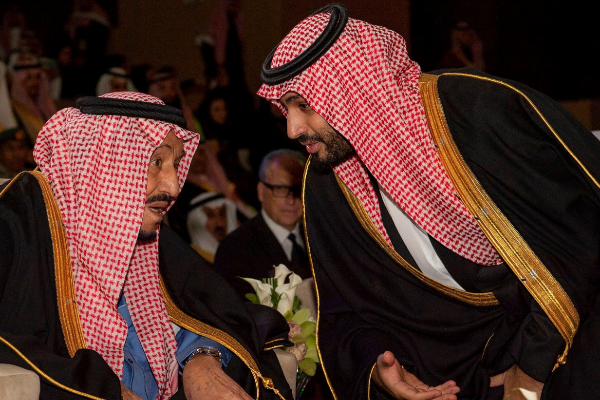Far from being silent, repression continues to ravage the confines of Saudi Arabia. At least a dozen intellectuals, writers and businessmen have been arrested in recent days in raids carried out by security forces in their homes, two Saudi human rights organizations denounce EL MUNDO.
The nth wave of arrests against internal dissent has occurred in the cities of Riyadh and Jeddah, on the shores of the Red Sea. ALQST, an organization that monitors the abuses of the Saudi regime from London, and the group "Prisoners of conscience" have confirmed to this newspaper that the victims of this new campaign, launched in the last week, are counted by a dozen, among academics, Bloggers and activists. A list that includes two women.
"This new wave of arrests represents another episode in the continuous and powerful repression against activists , writers and supporters of the reforms since Mohamed bin Salman became crown prince," they say from ALQST. Unlike previous raids, detainees lacked a relevant public profile.
Among those arrested, is Fuad al Farhan, a blogger and entrepreneur who already suffered imprisonment in 2007 after denouncing the existence of political prisoners in the ultraconservative kingdom. Since then, however, he had chosen to avoid any public pronouncement. They have also suffered the same fate Abdelaziz al Heis, a researcher who worked for the Qatari channel Al Jazeera; and Abdelmajid Saud al Buluwi and Bader al Rashed, collaborators in several Saudi headers.
The Saudi Maha al Rafidi, a journalist for the Al Watan newspaper, and the writer Zana al Shahri have been arrested along with other activists such as Waad al Muhaya and Suleiman al Naser for expressing their political opinion through social networks. The Saudi authorities have not provided information on the reasons for the arrests, carried out at the victims' homes. During the raids, the agents also confiscated their electronic devices.
In May 2018, security forces arrested a dozen activists, protagonists of a judicial process that has led to the international condemnation. Although some of them were released on bail, last April a new wave of arrests reached a dozen defenders of women's rights, including two citizens with US citizenship.
One of the icons of repression is Loujain al Hathloul, the 30-year-old activist who has been behind bars for a year and a half. Together with the rest of those arrested, she is being tried for "having maintained suspicious contacts with rival countries" and "undermining national security and stability" in a process censored by the international community that could conclude with sentences of up to twenty years in prison.
His judicial ordeal, however, has not reaped progress since spring. "In April they canceled the last hearing of the judicial process and, since then, we have no news or received any official explanation about the suspension. Last August Loujain refused to withdraw his complaint of having suffered torture and abuse," says Lina, her sister. , in conversation with this newspaper.
Torture Complaints
Recent arrests add to allegations of torture. "The authorities continue to torture activists, men and women, in Saudi prisons and torture rooms installed in homes outside the prison network," they warn from ALQST, also concerned about solitary confinement, permanent transfers between cells and criminals of maximum security or the absence of health care to which dissidents are subjected.
The new blow to the internal opposition in the country coincides with the attempt of Mohamed bin Salman, the powerful 34-year-old heir, to turn the page. The country's international credit has been seriously damaged by the murder of journalist Jamal Khashoggi at the Saudi consulate in Istanbul in October 2018; the bloody intervention in neighboring Yemen, with tens of thousands of victims of the bombers, or the internal purge that opened in September 2017, with the arrest of several reformist clerics who could end up in the scaffold, and the persecution of businessmen and princes two months later.
Riad has launched this month the partial privatization of the oil giant Aramco, the most profitable company on the planet, and has just assumed the presidency of the G20, a responsibility that it will hold during the next year. Despite its attempt to promote social and political reforms and bleach its image through the organization of sporting events, Saudi Arabia continues to struggle to attract foreign investors.
According to the criteria of The Trust Project
Know more- Saudi Arabia
- Yemen
- Jamal Khashoggi
TelevisiónTVE will not bid for the Super Cup in Arabia "for humanitarian reasons" but says yes to the Dakar, Athletics and Club World Cup
MediaRTVE renounces to issue the Spanish Super Cup that will be held in Saudi Arabia
SoccerThe Dakar, big Spanish companies and a nod from the Government: Rubiales' other reasons to take the Super Cup to Saudi Arabia

